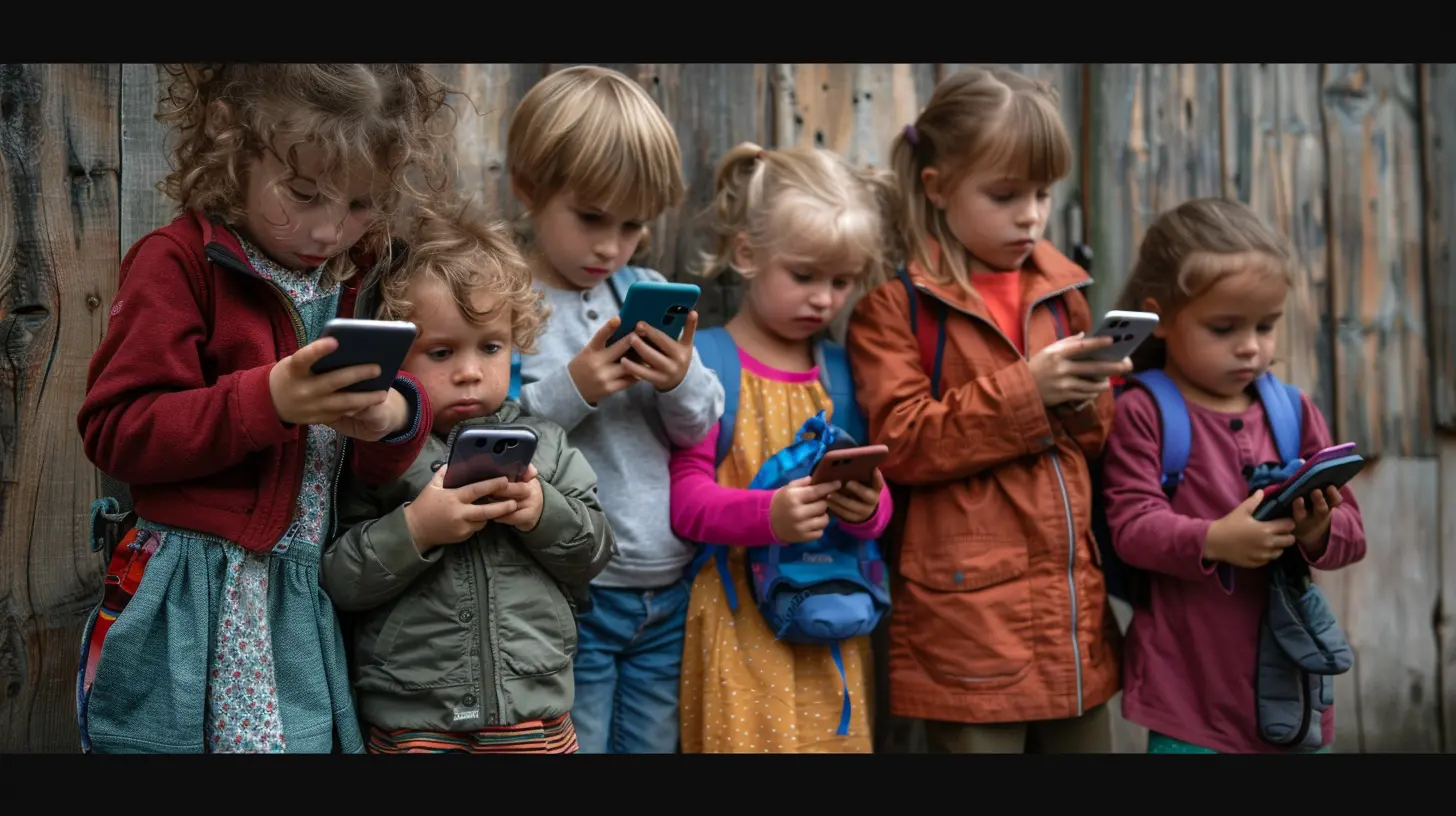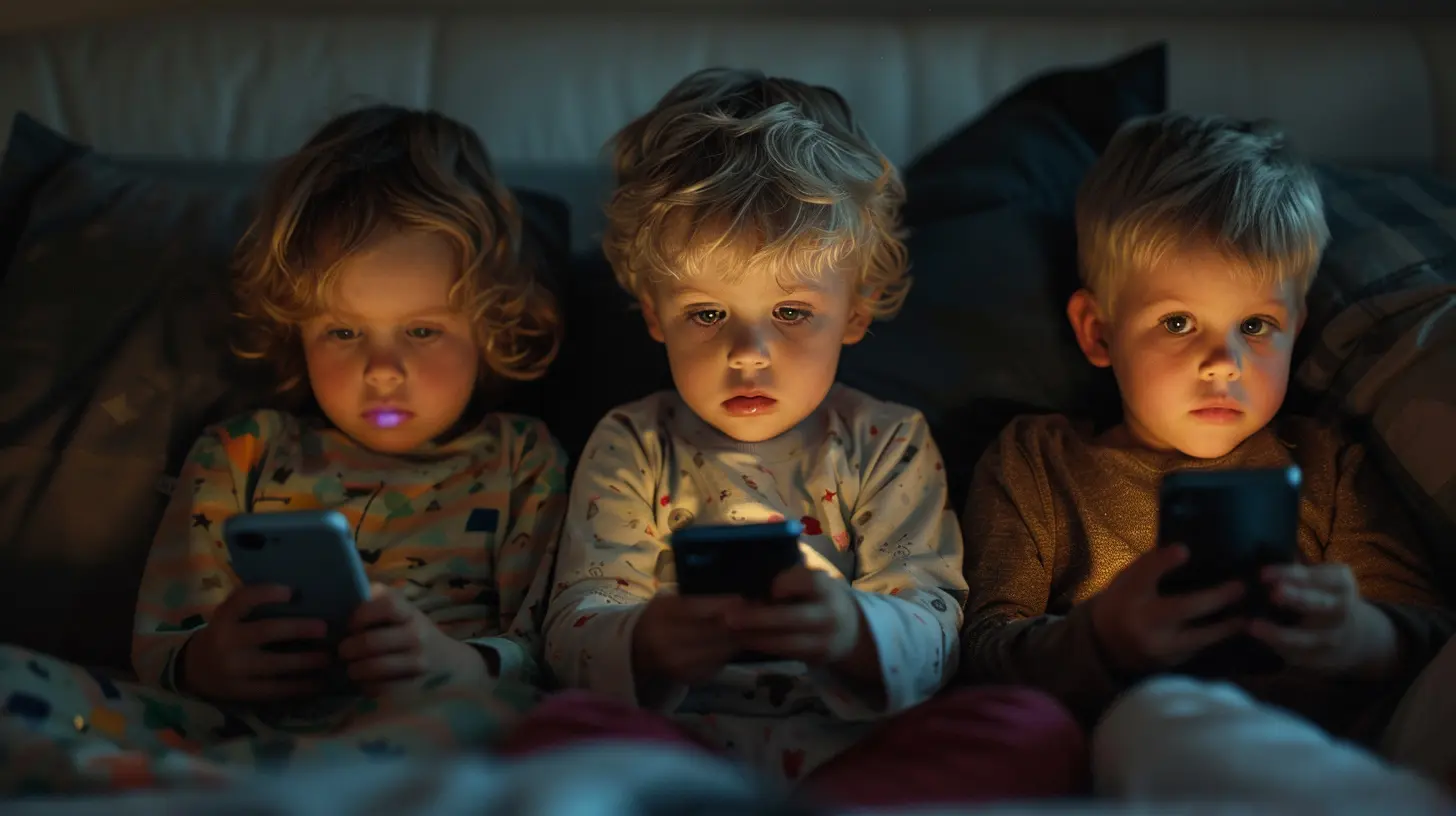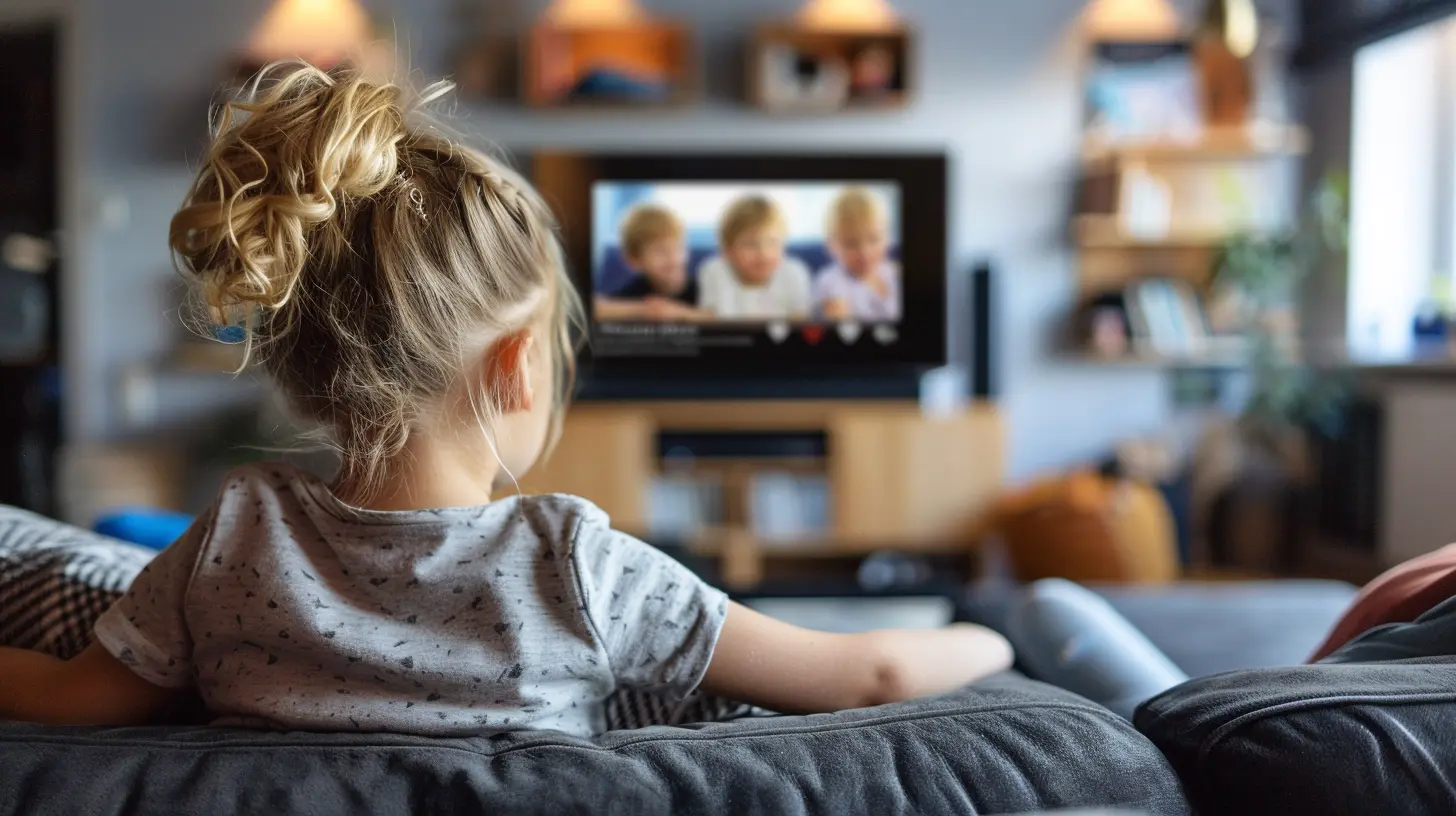Understanding the Impact of Screens on Your Child’s Social Skills
13 October 2025
Let’s be honest—we're all a little glued to our screens. Whether it’s smartphones, tablets, computers, or TVs, digital devices have become a staple in most households. And our kids? They're growing up in this digital jungle.
But here’s the big question every parent eventually faces: How do screens affect our children's ability to connect with other people? Are those hours spent swiping and tapping helping or hurting their social skills?
In this post, we’re going to take a closer look at the connection between screen time and your child’s social development. We'll break it down in simple terms, without overwhelming you with science-y jargon. And more importantly, we’ll figure out what you can do to find the right balance.
Why Social Skills Matter So Much
Before we get into screens, let’s talk about why social skills are a big deal in the first place.Social skills are more than just saying “please” and “thank you.” They help kids form friendships, express their feelings, handle conflicts, and understand the world around them. These skills are essential for emotional health, academic success, and eventually even the workplace.
Now here’s the kicker—social skills don’t just magically appear. Kids learn them through practice, observation, and real-world interaction. And that’s where screens can either support or sabotage.
The Rise of Screen Culture in Childhood
Think about how childhood has changed in the past 20 years. Remember when playing outside, building forts, and riding bikes were the norm? Now? Many kids spend more time indoors watching YouTube, playing video games, or scrolling through apps.According to recent studies, the average child spends between 4-7 hours a day on screens. For teens, it can be even more. That’s a lot of time sitting still, staring at a screen instead of making eye contact or running around with friends.
It’s no surprise that many parents are noticing shifts in how their kids communicate.
How Screens Can Harm Social Development
Alright, let’s dive into the downsides first. Not to scare you, but to keep it real.1. Less Face-to-Face Interaction
Ever try talking to your kid while they’re mid-YouTube binge? It’s like talking to a brick wall, right?When screens dominate kids' attention, they miss out on face-to-face interactions. That’s where they learn body language, tone of voice, eye contact—all the subtle stuff that makes communication meaningful. Without enough of those real-life moments, their social muscles don’t get the workout they need.
2. Trouble With Empathy
Empathy isn’t something you can learn from a screen. It’s built over time through shared experiences, conversations, and emotional responses.When kids spend too much time gaming or watching videos (especially violent or fast-paced ones), they can become desensitized to others' feelings. Over time, this might make it harder for them to relate to others or handle emotional situations.
3. Instant Gratification and Reduced Patience
Let’s be honest, screens offer a quick fix. Tap. Swipe. Get reward. The dopamine hits are real.But this can lead to impatience in real-life situations. Socializing takes effort. It’s messy, unpredictable, and doesn’t always offer instant results. Kids used to instant gratification from screens may struggle with the slower, more complicated nature of human relationships.
4. Poor Communication Skills
Texting and messaging teach kids to communicate in short bursts—often with abbreviations and emojis. While that’s fun, it doesn’t replace real conversation.Kids need to learn tone, timing, assertiveness, and listening skills. Without enough practice, these can lag behind, making it harder to make friends and work through social challenges.
Ways Screens Can Benefit Social Skills (Yes, There's a Flip Side!)
Now, don’t get us wrong—screens aren’t all doom and gloom. When used wisely, they can actually help develop social skills.1. Staying Connected
For kids, especially those with long-distance friends or family, video calls and messaging apps can keep relationships strong. Social media (used responsibly) also helps older kids connect with peers, share interests, and express themselves.2. Learning Through Educational Media
Some shows and apps are designed specifically to teach empathy, problem-solving, and communication. Shows like “Daniel Tiger” or apps like “ClassDojo” can be surprisingly effective in modeling positive social behavior.3. Interactive Gaming
Not all games are isolating. Multiplayer games can teach teamwork, strategy, and cooperation—if they're age-appropriate and monitored. Sometimes, even a heated game of Minecraft turns into a lesson in collaboration and negotiation.Spotting the Warning Signs
So how do you know if your child’s screen time is impacting their social skills?Here are a few red flags to watch for:
- They prefer screens over playing with friends
- They get anxious or irritable when not on a device
- They avoid eye contact or struggle with back-and-forth conversation
- They have difficulty understanding others' emotions
- They struggle to make or maintain friendships
If you’re nodding along to several of these, it might be time to reassess screen habits at home.
Setting Healthy Screen Time Boundaries
Nobody wants to be the “mean” parent, but boundaries are essential. Here are a few ways to strike a balance:1. Set Specific Screen Time Limits
Use timers, apps, or parental controls to help manage time—especially on school nights. Many experts recommend no more than 1–2 hours of recreational screen time per day for kids.2. Create “No Screen” Zones
Make mealtime, bedtime, and family time tech-free. These windows are golden for connection.3. Lead by Example
Yep, you knew this one was coming. Kids follow our lead. If they see us glued to a phone during dinner, they’ll think that's the norm.Make a conscious effort to be present, put your phone down, and engage. It might feel weird at first, but it’s worth it.
4. Encourage Real-World Play
Sign them up for sports, art classes, drama clubs—anything that encourages face-to-face interaction. Outdoor play, unstructured time with siblings, even simple board games can do wonders.Encouraging Open Conversations About Screen Use
Your child isn’t the enemy here—and neither is technology. It’s all about balance and being intentional.Talk openly about screens. Ask them what they’re watching, playing, or reading online. Join in sometimes. Show interest. That dialogue not only builds trust, but it also helps you guide their usage in a positive direction.
Try questions like:
- “What did you like about that game?”
- “Did that video make you feel anything?”
- “Would you recommend that show to a friend? Why?”
These kinds of questions promote reflection, which is key to emotional intelligence and social growth.
Tech With a Twist: Screen Time That Builds Social Skills
Let’s not throw the baby out with the bathwater. Some screen time can actually promote social development.Here are a few ideas to try:
1. Video Calls With Family
Have a weekly Zoom call with grandparents. Let your kid help plan it. This builds confidence and conversation skills.2. Watch-and-Talk Shows
Pick a family-friendly movie or show and watch it together. Pause occasionally to chat about the characters’ actions and feelings. It’s like a book club for the digital age.3. Collaborative Games
Try games that require teamwork, like Roblox, Minecraft (in creative mode), or even co-op console games. Just be sure to set time limits and play occasionally with them.4. Storytelling or Animation Apps
Apps that allow kids to create and share stories, like Toontastic or Book Creator, can enhance communication and creativity. They’re sharing ideas in a fun, engaging way.Final Thoughts: It’s About Balance, Not Perfection
Here’s the truth—screens aren’t going anywhere. And that’s okay. The goal isn’t to eliminate them but to manage them in a way that supports your child’s overall growth.When it comes to social skills, nothing beats real-life experience. So use screens as a tool, not a crutch. Be intentional, stay involved, and stay curious. A few simple shifts can make a world of difference in how your child navigates relationships, from the playground to adulthood.
Remember, the best app for your child’s social development... is you.
all images in this post were generated using AI tools
Category:
Limiting Screen TimeAuthor:

Steven McLain
Discussion
rate this article
1 comments
Audrey Erickson
Great insights! Balancing screen time and real-world interactions is crucial for developing children's social skills.
October 16, 2025 at 4:25 PM

Steven McLain
Thank you! I completely agree—striking that balance is key to fostering healthy social development in children.


